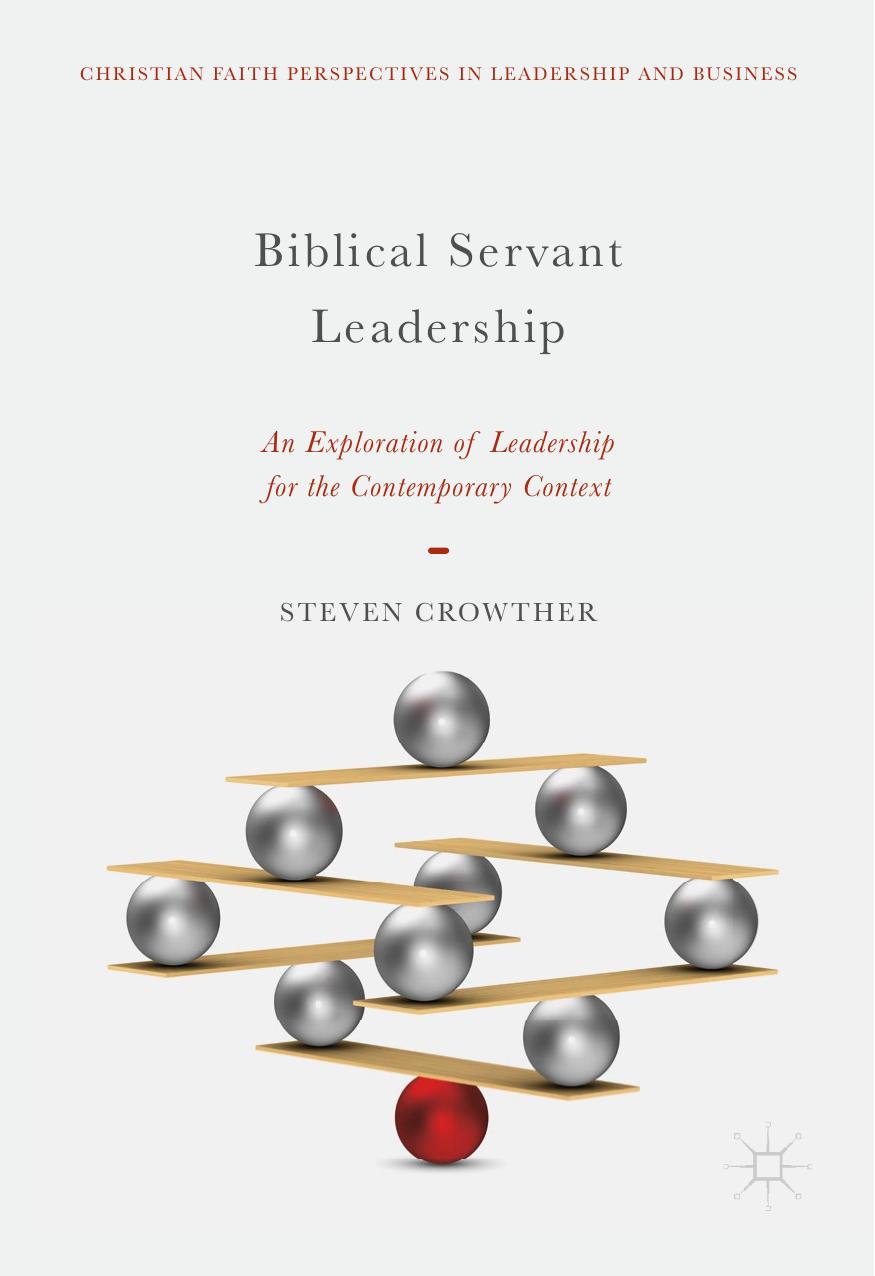Biblical Servant Leadership by Steven Crowther

Author:Steven Crowther
Language: eng
Format: epub, pdf
Publisher: Springer International Publishing, Cham
Jesus takes great care to contrast Gentile leadership with servant leadership. This is a clear declaration of servant leadership. First, it is of note that Jesus does not rebuke the disciples for wanting to be great . He actually encourages this desire for greatness. Nevertheless, in this kind of leading, greatness looks different and has a different path than the norm. These Gentile rulers are considered rulers. This word “considered” means to think or seem to be something (Friberg & Friberg, 1994). They seem to be leaders but are they to be imitated as leaders? The implication is that they are not the models to follow for a pattern of leadership. Then notice that they exercise authority over, they are not with the followers in collaboration, they are over them, and they use their authority as one over another.
The repetitions change just after the middle as it moves into the closing. The focus moves from greatness to serving. Wanting to be great is good but the focus now needs to change to becoming a servant in how to become a great leader. At the same time these repetitions change; the contrasts begin to appear. The first contrast is in verse 43a and it is the large contrast in the full teaching in this pericope. This is the contrast between Gentile rulers and servant leaders. These are two opposite ends of the spectrum in leadership. One focuses on the greatness of the person and this person’s authority , while the other one focuses on the person becoming a servant and then serving others. This contrast moves quickly into another contrast in verse 43b. This is the transition from greatness to servanthood. Greatness is a good goal but there is a new and opposite path. Notice here that his greatness is not an appearance of greatness but it is becoming great and the process is now in becoming a servant. It does not begin with serving but first it begins with becoming a servant. It is an ontological change first. This shift then is a shift in thinking, priorities, and even a shift in being or ontos. In verse 44, Jesus restates this concept but replaces some of the words. He replaces greatness with first and servant with slave. This word “first” instead of “greatness” means first of several (Friberg & Friberg, 1994). This word is transitioning the focus from self to others and it is a position among many instead of a place that is over others. The word “servant” is one who renders help to another, whereas slave is one who is in obedience to another (Friberg & Friberg, 1994). These do not cancel each other but instead work together in this person who helps others and this is in obedience to God. This is the divine intention for leaders. Then notice that to be great one must become servant of all. This is not a suggestion; this is what must happen for this path to greatness to work. In addition, the word here is not that one should serve but that the leader must become servant.
Download
Biblical Servant Leadership by Steven Crowther.pdf
This site does not store any files on its server. We only index and link to content provided by other sites. Please contact the content providers to delete copyright contents if any and email us, we'll remove relevant links or contents immediately.
The Five People You Meet in Heaven by Mitch Albom(2841)
Name Book, The: Over 10,000 Names--Their Meanings, Origins, and Spiritual Significance by Astoria Dorothy(2490)
Real Sex by Lauren F. Winner(2474)
The Holy Spirit by Billy Graham(2414)
The Secret Power of Speaking God's Word by Joyce Meyer(2252)
0041152001443424520 .pdf by Unknown(2219)
How The Mind Works by Steven Pinker(2212)
Ancient Worlds by Michael Scott(2102)
ESV Study Bible by Crossway(2088)
The Meaning of the Library by unknow(2067)
The Gnostic Gospels by Pagels Elaine(2026)
Churchill by Paul Johnson(2009)
MOSES THE EGYPTIAN by Jan Assmann(1970)
The ESV Study Bible by Crossway Bibles(1907)
Jesus by Paul Johnson(1887)
The Nativity by Geza Vermes(1848)
Ancient Near Eastern Thought and the Old Testament by John H. Walton(1846)
The Complete Dead Sea Scrolls in English (7th Edition) (Penguin Classics) by Geza Vermes(1839)
City of Stairs by Robert Jackson Bennett(1825)
